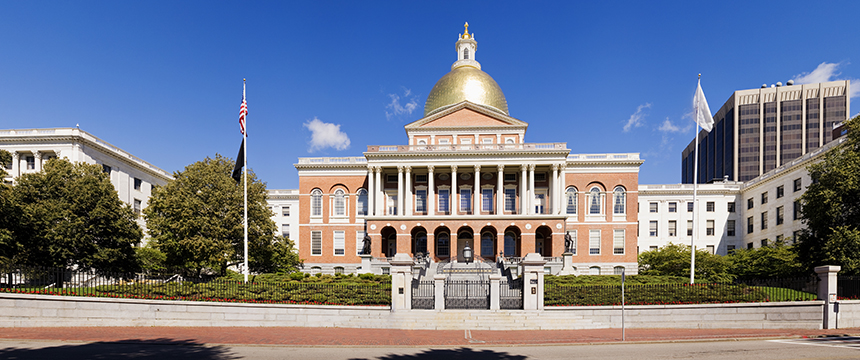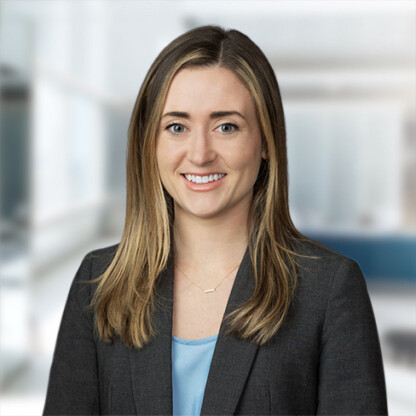Massachusetts Paid Family and Medical Leave: Answers to Employers’ FAQs

Employees in Massachusetts will soon be eligible for up to 26 weeks of paid family and medical leave.
As explained in a recent post, benefits established by the Massachusetts Paid Family and Medical Leave (PFML) law become available on January 1, 2021. PFML provides paid leave for individuals facing a health crisis, bonding with a child, or caring for a sick relative. Benefits will be paid to employees by the Massachusetts Department of Family and Medical Leave (the “Department”), unless an employer has been approved for a private plan exemption.
As the new year draws closer, Massachusetts employers have a number of questions about how PFML will work. This post provides answers to some of employers’ most frequently asked questions.
- Can employers require that employees use accrued paid time off (“PTO”) prior to using PFML leave?
No, an employer may not compel an employee to exhaust rights to any sick, vacation, or other PTO prior to taking PFML leave.
- How does an unlimited PTO policy interact with PFML?
Employers with unlimited PTO policies may specify in their policies that unlimited PTO cannot be used for a leave of absence. The unlimited PTO plan would therefore not impact PFML leave.
Additionally, under PFML, the first seven days of leave are considered an initial waiting period, and benefits are not paid by the Department. If an employer wants to compensate its employees for this seven-day waiting period, it may include that in its PFML policy, but employers should refer to that payment as “wage-replacement benefits” or “supplemental benefits” rather than designate such payment as use of unlimited PTO.
- Can employers require employees to exhaust PFML benefits before using additional employer-provided family, medical, or temporary disability benefits?
Yes, an employer may require that PFML leave benefits run concurrently with benefits or leave allowed under the terms of an employer’s temporary disability or family/parental leave policy. Any PFML policy should explicitly state this.
- May employers provide additional family, medical, or temporary disability leave benefits on top of PFML benefits?
Yes, employers may “top up” employees such that they receive benefits greater than those that would be available through PFML leave alone. For example, PFML entitles an employee bonding with a new child up to 12 weeks of leave and partial (50-80%) wage replacement. If an employer seeks to offer 18 weeks of leave and full wage replacement, it may pay the employee additional wage replacement benefits on top of the PFML benefits for the first 12 weeks, and then may elect to pay the employee their full salary for the remaining six weeks after PFML benefits have been exhausted.
- Are new mothers entitled to both medical leave and bonding leave after giving birth?
Yes, an employee may take PFML medical leave during pregnancy or recovery from childbirth that is immediately followed by PFML family leave. However, the request must be supported by documentation from a health care provider.
- Are employers required to allow employees to take PFML on an intermittent or reduced leave schedule?
The answer to this question depends on what type of leave the employee is taking:
- PFML Family Leave:
- An employee that has taken PFML family leave to bond with a child may take intermittent leave only if the employer agrees to the schedule.
- An employee that has taken PFML family leave to care for a relative may take leave intermittently if a health care provider deems it medically necessary.
- An employee that has taken PFML family leave due to a qualifying exigency related to a family member’s active duty may take leave intermittently.
- PFML Medical Leave
- An employee that has taken PFML medical leave due to their own serious health condition may take intermittent leave if medically necessary.
- An employee that has taken PFML medical leave due to their own serious health condition may take intermittent leave if medically necessary.
- PFML Family Leave:
- What happens in the event an employee does not return from PFML leave?
Because employers are obligated to continue providing health care coverage to employees while they are on PFML leave, employers have been asking whether they may require an employee that does not return to work to repay the cost of health benefits provided during the leave. At this time, this is neither expressly permitted nor prohibited by the statutes and regulations. Any employer who incorporates such language into its PFML policy should stay informed about any changes to the PFML statute and regulations.
* * *
It is important to keep in mind that benefits will become available for the first time in January 2021, and that the Department may issue supplementary authority. In the meantime, please reach out to your Foley & Lardner LLP Labor & Employment attorney for assistance with the Massachusetts law, or with paid family and medical leave requirements in any state where you have employees.

